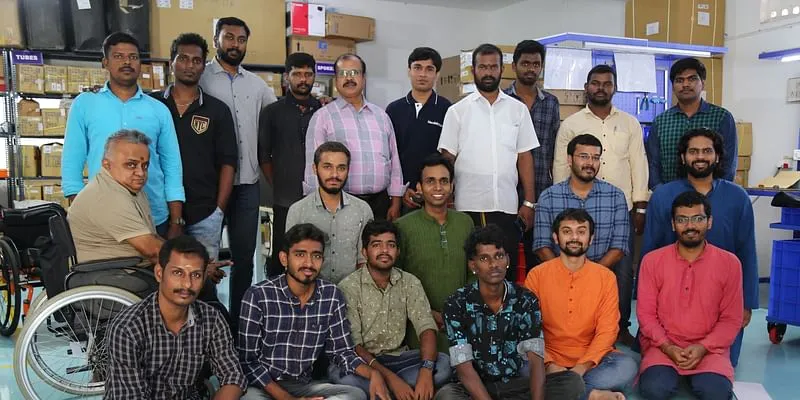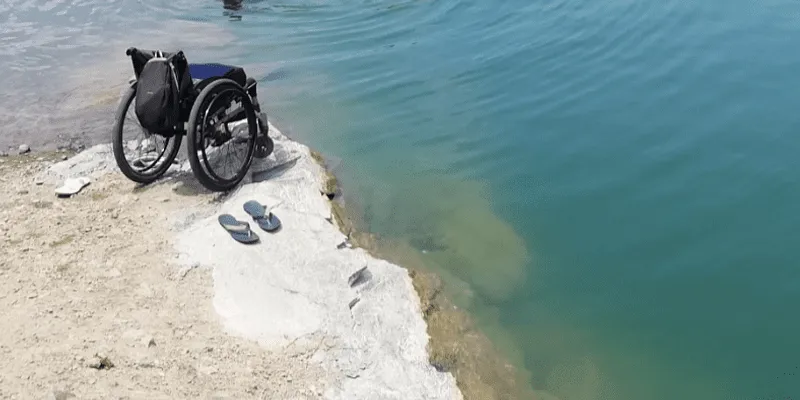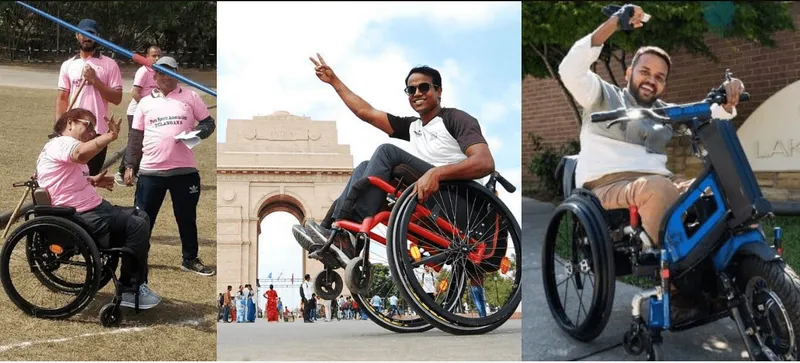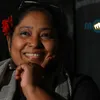This startup is helping people with disabilities to live a more independent life with their products
Founded in 2016, Neomotion is a startup that is focused on helping people with disabilities to move around without any help.
Arun, a man in his mid-30s, received a job with a decent salary at a government organisation. However, having spent his life in a wheelchair, he did not take up the job considering the travel cost, which would go up to at least Rs 300 a day considering the distance.
It isn’t just Arun, but many people have lost opportunities due to the one-size-fits-all wheelchair mediocrity, as a result of which, the users restrict themselves to the four walls of their homes.

Team NeoMotion
However, a Chennai-based startup is out to transform this scenario, and enable people with disabilities to live independently.
NeoMotion is focused on helping the physically disabled to move around without the help of another. It was founded in 2016 by Swostik Dash, an IIT alumnus, and Dr Sujatha Srinivasan, a professor in the Department of Mechanical Engineering at IIT Madras.
“We wish to enable wheelchair users to stay healthy, go out, explore life, get employed and be independent,” Swostik tells Social Story. “Our ambition is to touch one lakh lives every year in India by 2025.”
The journey
Swostik’s passion for product design and commitment to using it for the community, clubbed with Sujatha’s rich, 25-year experience in the assistive devices space, led to the foundation of NeoMotion.
Swostik joined Sujatha at the TTK Centre for Rehabilitation Research and Device Development Lab (R2D2) of IIT Madras where they designed and developed a Swimming Pool Lift for the physically disabled.

The journey of NeoMotion started during the Standing Wheelchair project. During 2015, Swostik and his friend, Vivek Sarda designed the standing wheelchair and travelled across 40+ locations in India, interacting with 200-plus wheelchair users to test the product.
“During this phase, they observed first-hand, the mediocrity of products presently being used for indoor and outdoor mobility by wheelchair users,” says Swostik.
In December 2015, the International Committee of the Red Cross (ICRC) conducted a two-month-long event called the Enable Makeathon, where ideas had to be prototyped into products. NeoMotion’s products were one of these prototyped ideas, which was also a runner-up at this event.
Thus in May 2016, NeoMotion was founded with the mission to enable every wheelchair user to live life to the fullest.
The initiative has been funded by multiple organisations. They received Imprint India Grant from IIT Madras, and an award for ‘Design: Impact Awards for Social Change’, an initiative of Titan and Tata Trusts. In addition, they have also received seed grants from IIT Madras Incubation Cell and Villgro.
NeoMotion’s expertise comes from cumulative work experience of 60+ years in the disability sector, user-centric design, engineering, and clinical expertise in rehabilitation.
NeoMotion products
NeoFly is a personalised wheelchair designed to enhance health and lifestyle. Its 18-point customisations ensure a perfect fit to the user’s need. NeoFly covers three-to-five times more distance for every push owing to the right posture, rigid frame, and ergonomic push rim.
“The design conforms to the user’s body, making the user more visible than the wheelchair,” explains Swostik. “Every NeoFly wheelchair is also equipped with a NeoCushion, a seating cushion that enhances skincare, stability, and ease of transfer.”

NeoMotion assembly works
Another product is NeoBolt, a motor-powered clip-on which converts NeoFly into a safe, roadworthy vehicle. It eliminates the need to transfer to other vehicles and can be independently attached by the user within seconds. It has a maximum speed of 25 kmph, and travels up to 30 km per charge.
“NeoBolt can be safely used on uneven terrains,” says Swostik. “It will empower wheelchair users with a low-cost mode of outdoor mobility as compared to cars, autorickshaw, or modified scooters.”
NeoMotion’s other offering includes NeoFit – a platform to remotely assess wheelchair users and identify the appropriate customisations, NeoCare – for after-sales services and spares, and NeoLife – which provides health guidance to users.
“To make a personalized wheelchair, one needs users’ measurement (body dimensions) and information on health and lifestyle,” says Swostik. “Conventionally, this assessment is done through an in-person visit. However, thanks to NeoFit, we can do the assessment remotely.”
The teams had piloted NeoFit with 100+ users, and the results were promising. They can now successfully conduct remote assessments and deliver perfectly personalised products, which has proved to be very useful in these times of social distancing.
Ever since NeoMotion started commercial production in November 2019, more than 100 NeoFly units have been delivered across 20 states in India.
Like any mobility product like bicycle or automobile, NeoMotion products also require spares, service, and maintenance, which is provided by NeoMotion.
The impact
The product has impacted many lives in terms of time, convenience and building a sense of independence.

“My parents live just five minutes away, yet I need to use my car and need someone’s help to carry the wheelchair in and out of the car. I am always dependent. With NeoBolt, I can go independently,” says Justin Jesusdas, a happy customer of NeoFly.
Talking about its benefits in terms of aiding fitness, Shailesh Kumar, another user, expresses, “Using NeoFly, I have recorded India’s fastest wheelchair half marathon time, reducing my previous best time of 2 hours 12 Minutes by 20 percent. My present record is 1 Hour 45 minutes.”
The road ahead
The immediate focus of the startup is to scale operations, and make NeoFly and NeoBolt available to users across India. They are also expanding their product portfolio with accessories and new products.
“We are into this space for the long-haul. We have a line-up of products which are at the proof of concept stage. These span across sectors like products for children, therapy, indoor standing, etc. And as we move in our journey, we will find more opportunities.”
Edited by Kanishk Singh










